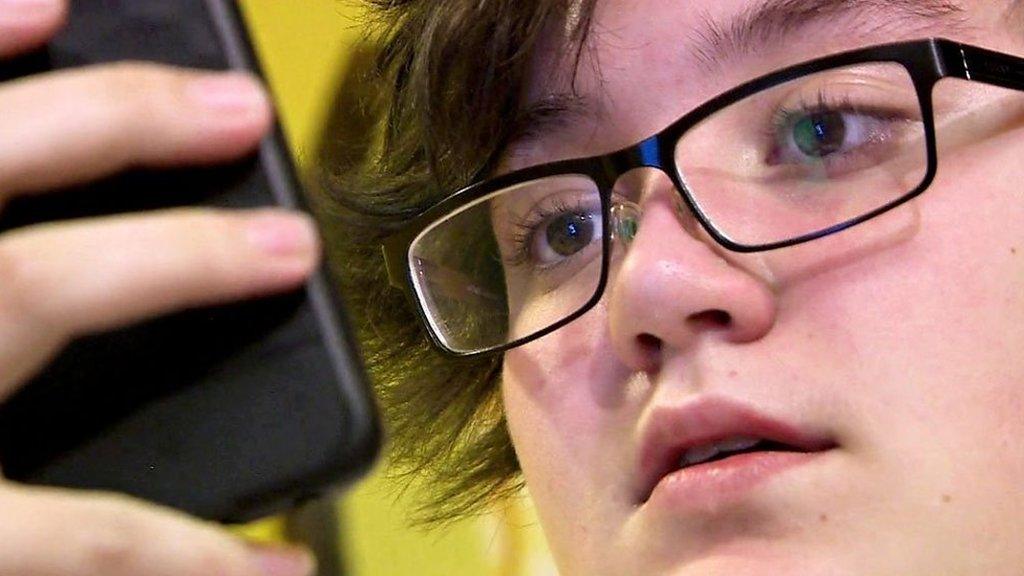Diet pills containing banned substances sold on Instagram
- Published
Potentially lethal diet pills sold through Instagram
Potentially lethal diet pills are being advertised and sold to teenagers on social media, the BBC has found.
Companies on Instagram deliberately targeted an undercover reporter posing as a teenager with an eating disorder.
Diet pills she was sold contained a banned substance that has been linked to heart attacks and strokes.
A spokeswoman for the social media company said Instagram had removed the accounts flagged up for violating its community guidelines.
'Dangerous'
Lynda Scammell, from the government agency responsible for regulating medicines, said people should not "gamble" with their health.
Over the past six years the Medicines and Healthcare products Regulatory Agency has seized diet pills with a value of more than £5m, types of which it says have been linked to 16 deaths.
The government is currently considering ways to regulate social media.
Instagram - which is used by more than a billion people worldwide every month - was recently criticised for the scale of graphic self-harm content on the platform, and the family of Molly Russell blame the site for the 14-year-old's suicide.
The pills purchased by the BBC arrived in the post from Thailand, without any ingredient information or dosage instructions.
Pharmaceutical analyst Anca Frinculescu found they contained a cocktail of laxatives, anti-depressants and Sibutramine, a banned substance withdrawn from the European market in 2010.
She warned: "You don't know what you're buying."
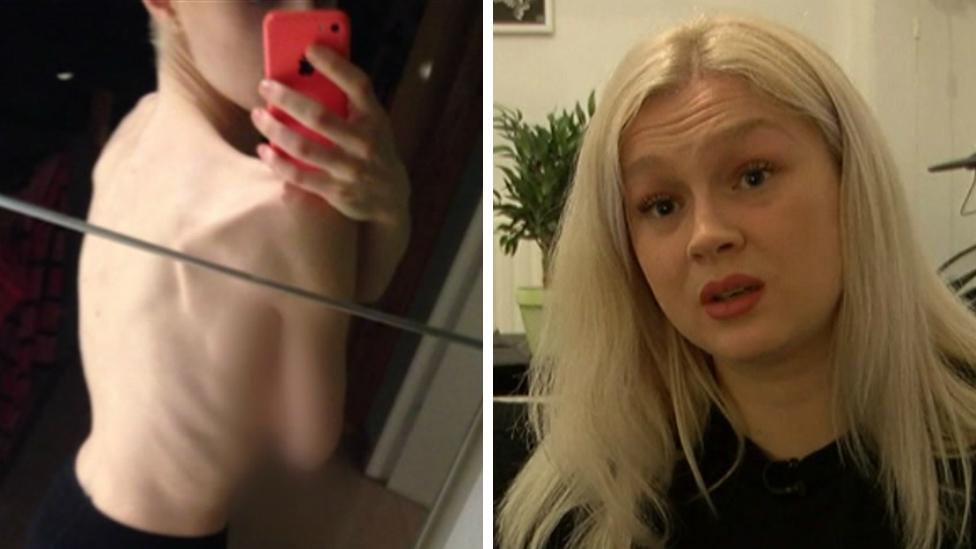
Alex Young as a teenager when she bought a diet plan on social media, and now at 22
As well as selling pills on Instagram, companies are also offering extreme diet plans.
Alex Young suffered with anorexia as a teenager in Sussex.
It was at the height of her illness, weighing only about 6st, that she was sold such a plan.
She said: "What they are encouraging... is pure restriction.
"They are being put together by people who aren't professionals and are encouraging fast, dangerous weight loss."
NHS figures, released under a Freedom of Information request, revealed the number of young people treated for eating disorders in Sussex more than doubled in three years, from 88 in 2016, to 190 in 2018.
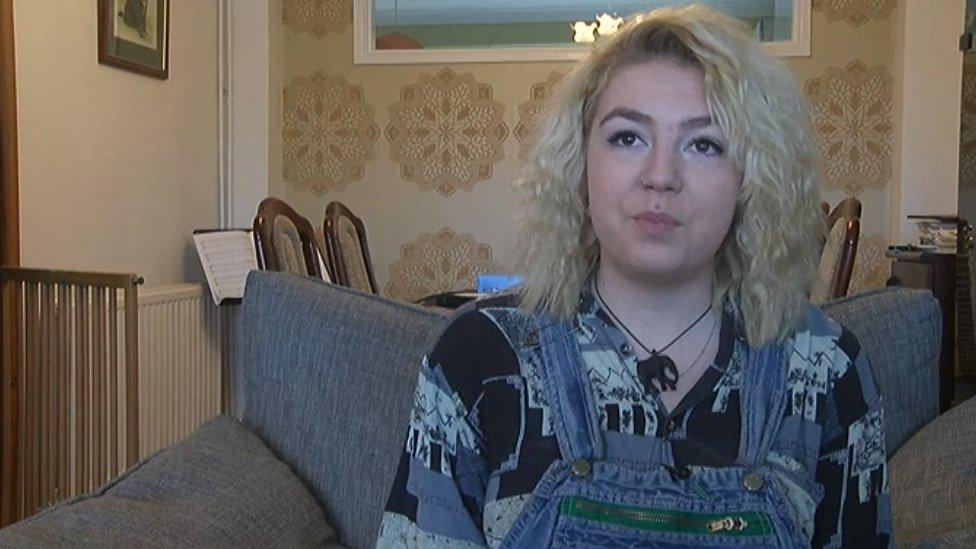
Hannah Copeland said social media was toxic
Kent University student Hannah Copeland became addicted to diet pills when she was a teenager and said social media was "toxic" with people painting the picture of what "the perfect body" should look like , alongside posts about diet pills.
"You put the two together and think 'this is what I need to do,'" she added.
BBC South East's undercover reporter was offered a number of diet plans within hours of setting up her profile.
On telling sellers she was suffering with anorexia she was advised how to stay anorexic.
The plans varied from one-off £20 fees, up to 300 US dollars (£229) for a three-month course.
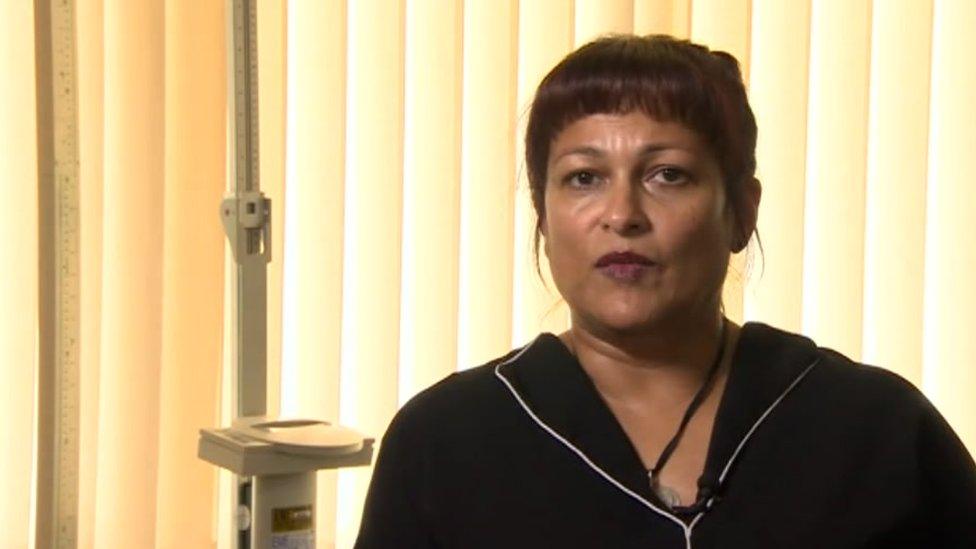
Clinical psychologist Annie Cardinal said people should seek medical help from professionals, not social media
Clinical psychologist from the North East London NHS Foundation Trust, Annie Cardinal, said: "Once the body has used up its fat reserves it uses up muscle, and the heart is a muscle.
"We know luxuries when you're on a long-term extreme diet go first - so, fertility - and then all organs would be compromised.
"Always seek help from a professional, rather than the internet, where anybody can post anything."
A spokeswoman for Instagram added: "Buying or selling illegal or prescription drugs is not allowed on Instagram.
"Any content that promotes or encourages eating disorders also breaks our terms and will be removed as soon as we are made aware of it. We encourage anyone who comes across content like this to report it using our in-app tools and we work quickly to remove it.
"We know there is more we can do and that is why we are continuing to work with experts and the wider industry to find ways to support people when they're most in need."
- Published25 February 2019
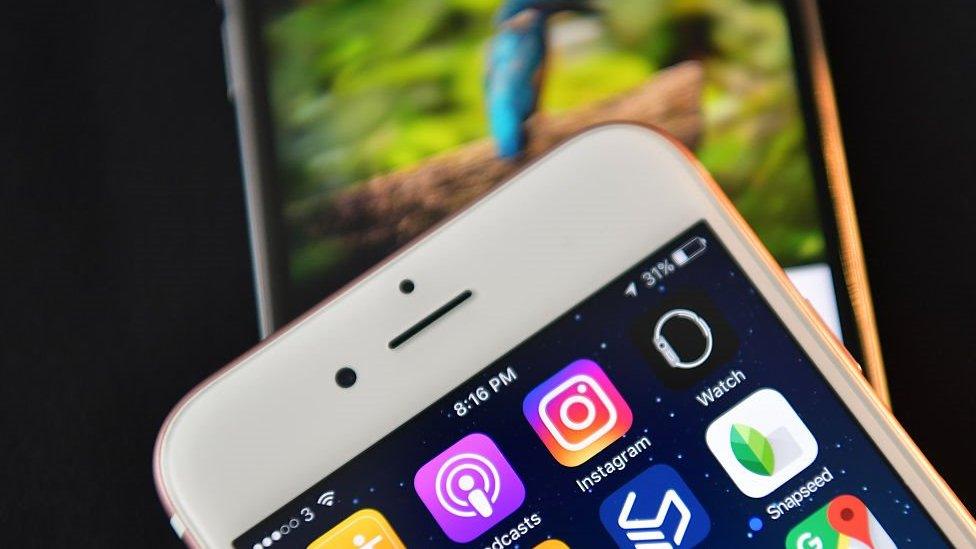
- Published23 February 2019
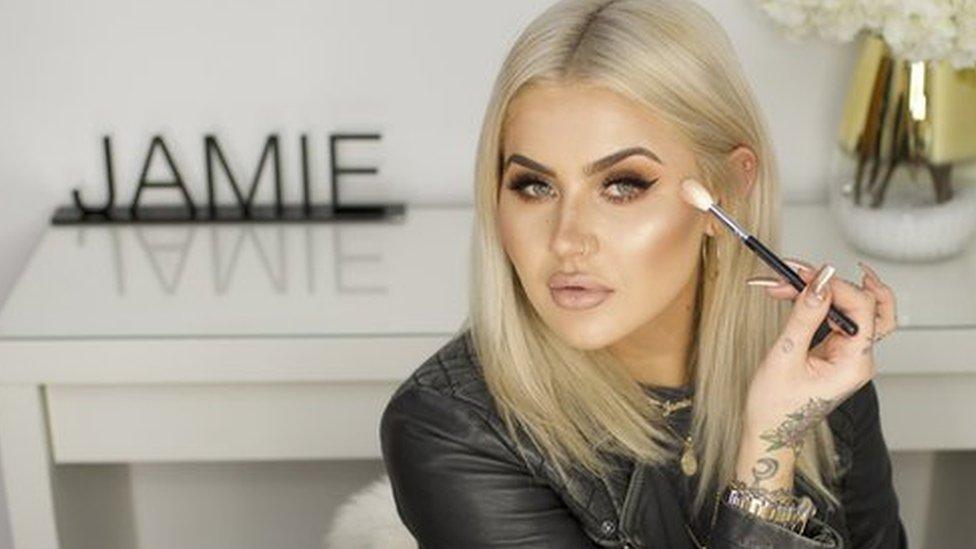
- Published17 February 2019

- Published7 February 2019
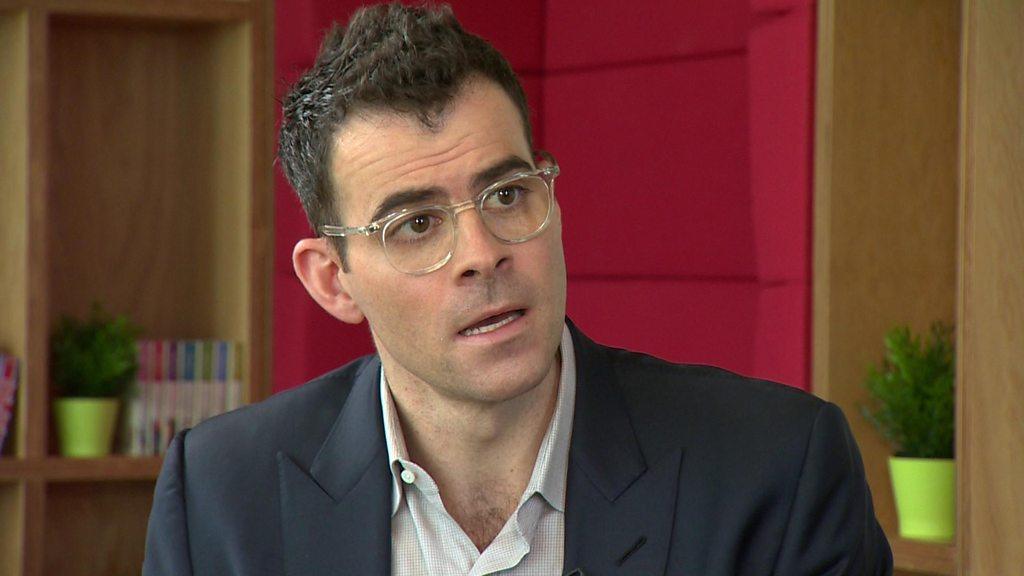
- Published12 February 2020
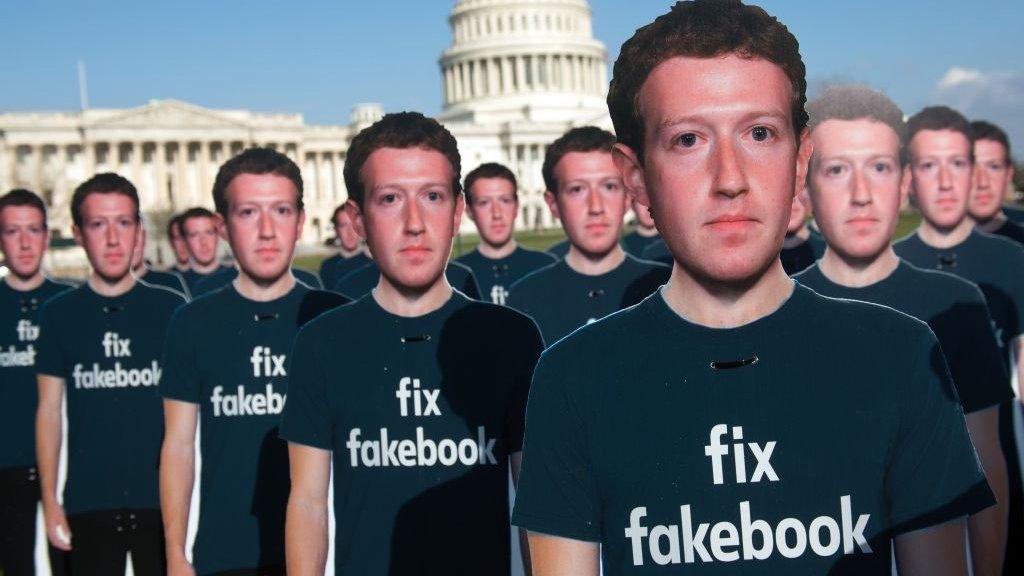
- Published4 February 2019
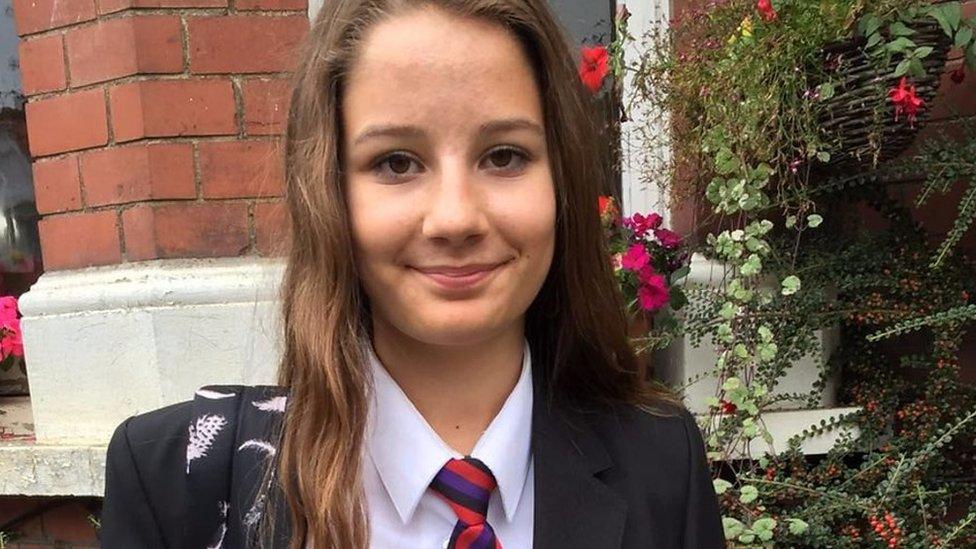
- Published31 January 2019
